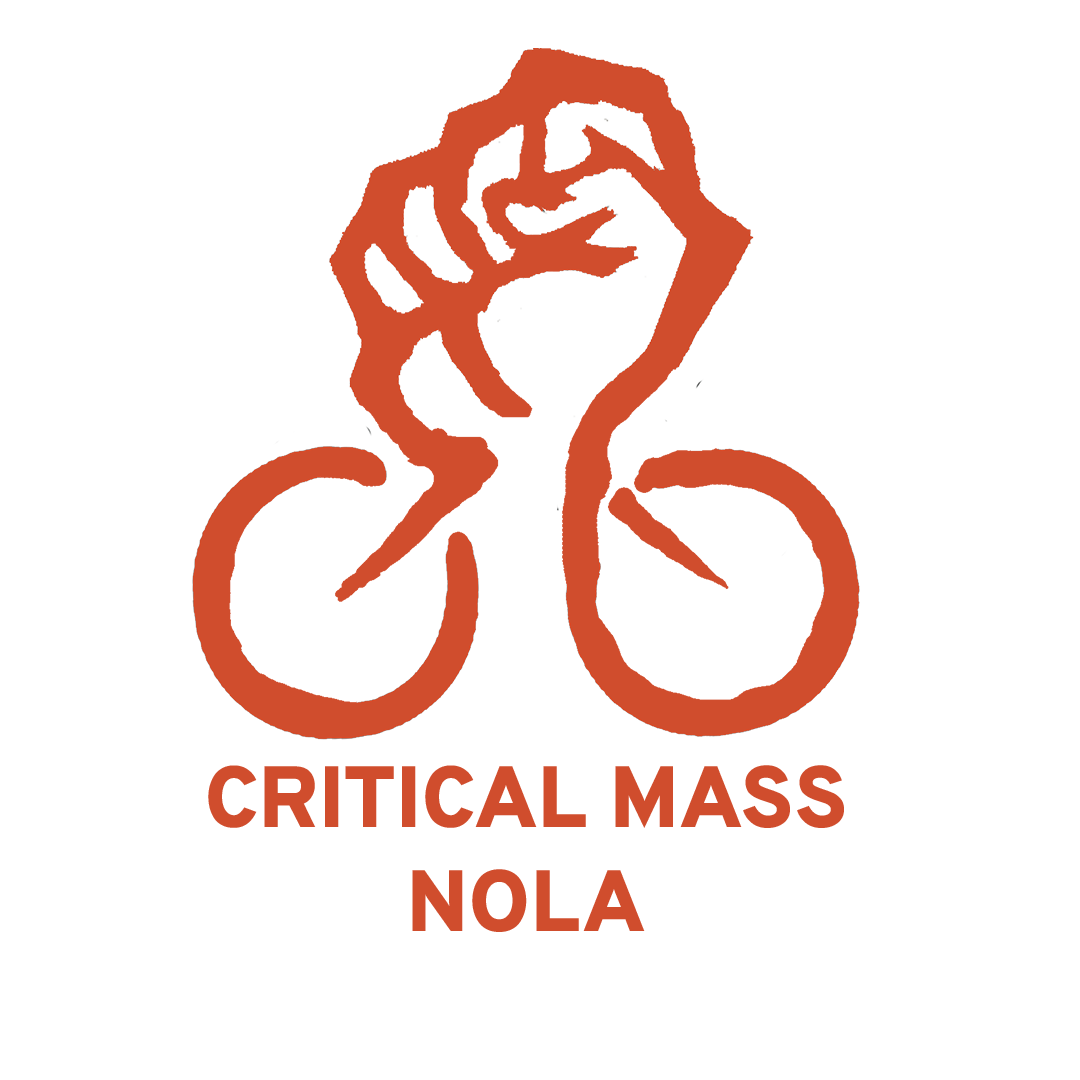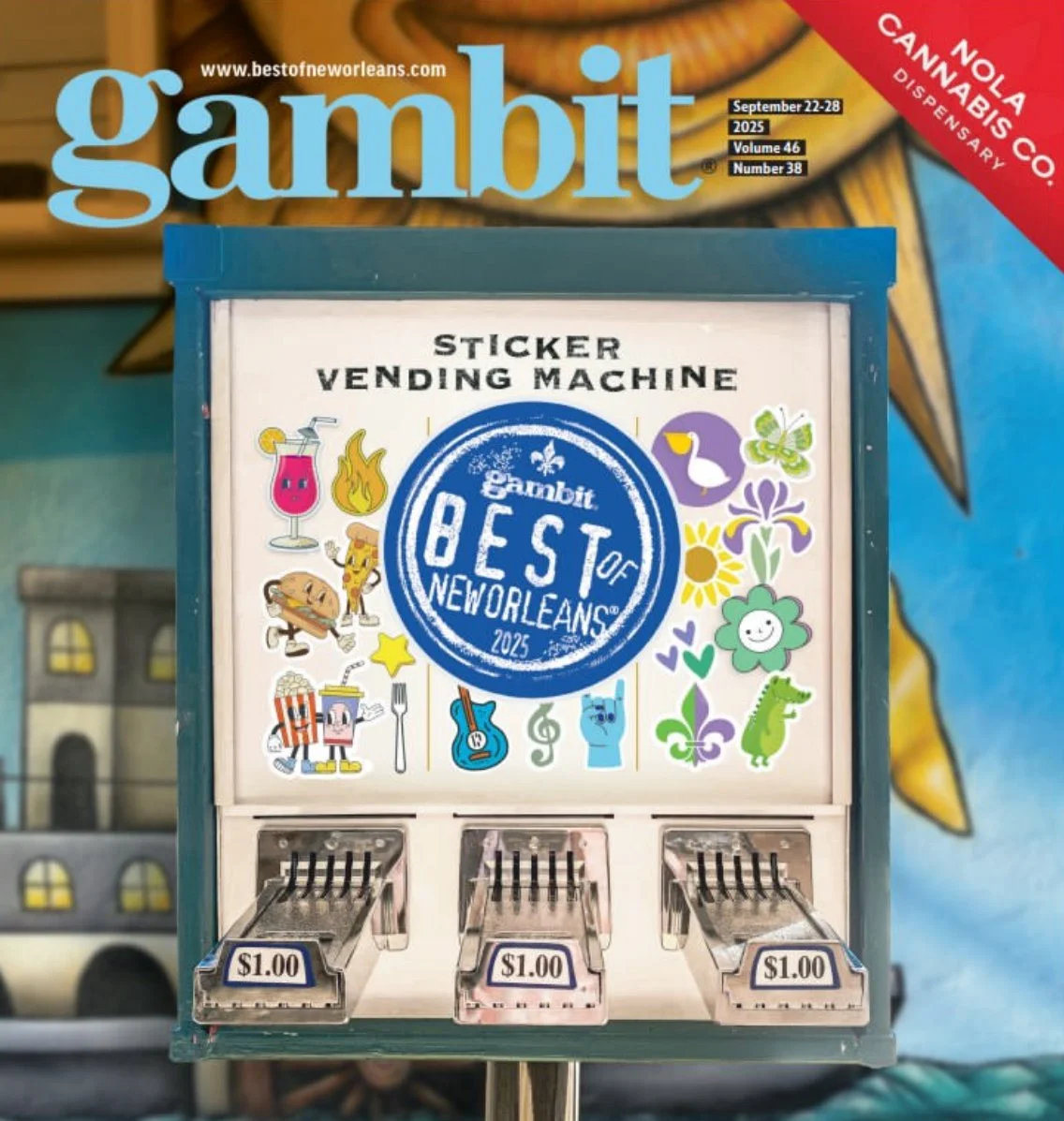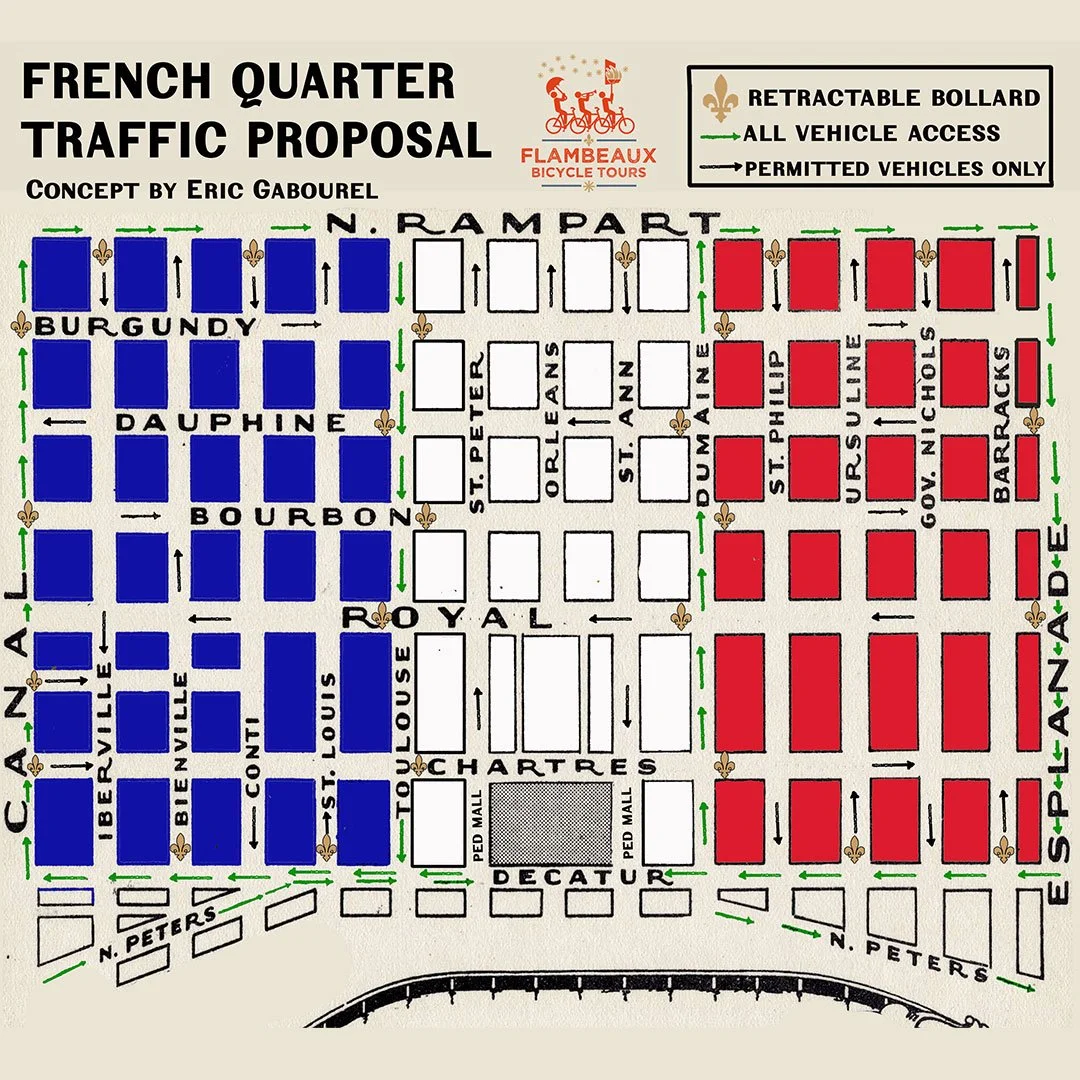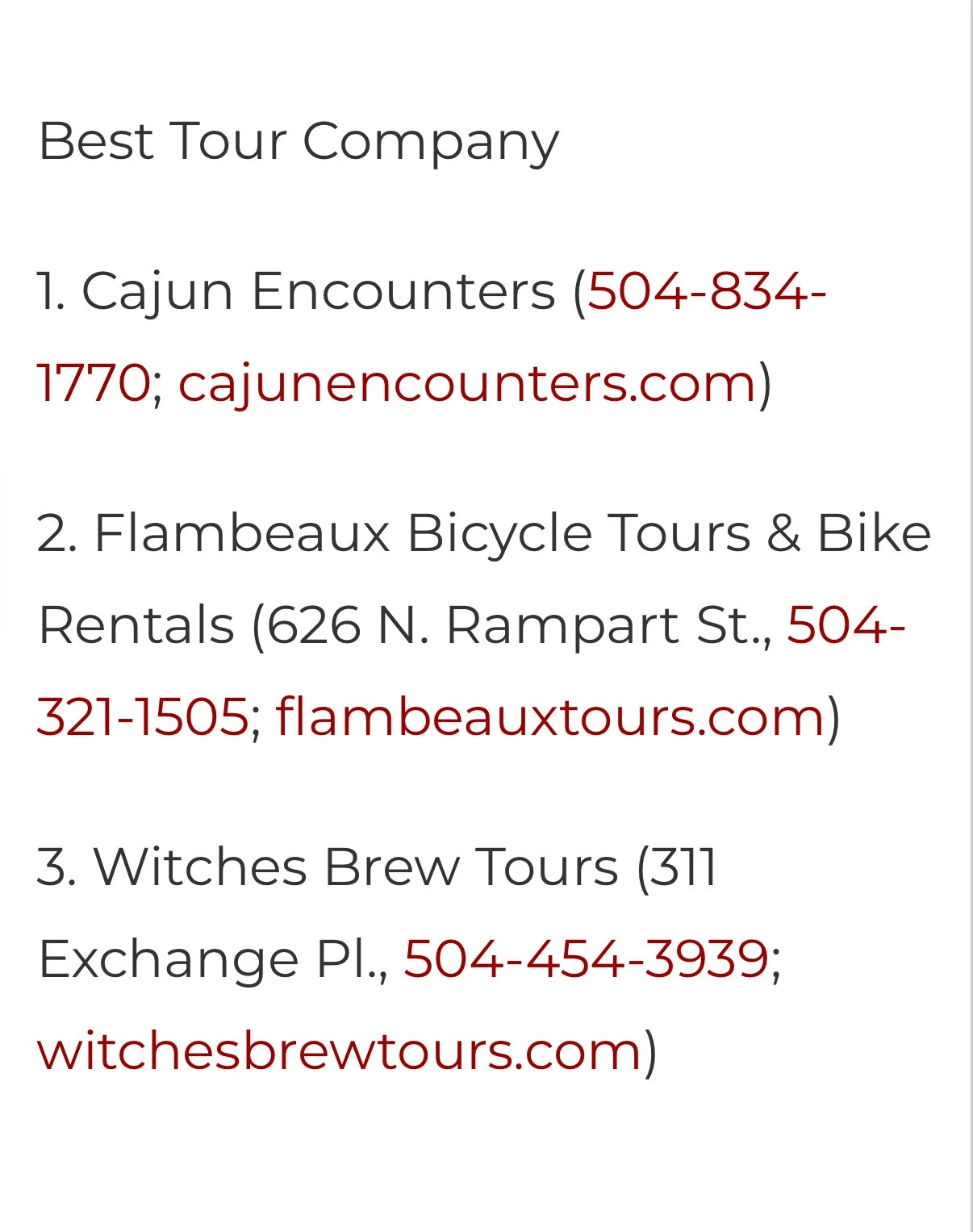From Tourism to Transformation: Flambeaux Bicycle Tours and the Vision for a Just City
Flambeaux Bicycle Tours was recently voted the No. 2 best tour company in New Orleans in the Gambit’s annual Best of New Orleans. On the surface, this recognition celebrates a local business that has shown visitors the city through the rhythm of pedals instead of the roar of engines. But beneath that honor lies a deeper question—What kind of city do we want to build as the climate crisis accelerates?
The stakes are no longer abstract. Rising seas, intensifying heat, and collapsing ecosystems urge us to transform our cities into more walkable and bikeable eco-cities. This is not simply about adding more bike lanes or crosswalks—it is about rejecting the car-centered model that has dominated urban planning for a century and replacing it with one that centers human beings and the environment. We cannot treat sustainability as a side project; it must be placed at the forefront of every industry, including tourism.
Flambeaux Bicycle Tours has taken this commitment seriously by advocating for Plan Vieux Carré (www.FrenchQuarterPlan.com), a proposal to reduce car traffic in the French Quarter and make the neighborhood safer, healthier, and more livable for New Orleanians and visitors alike. This vision is not about restricting movement but about reimagining it—creating streets designed for people, not for congestion and pollution.
Read and sign Flambeaux’s petition here.
From an eco-socialist perspective, this shift is about more than emissions—it is about liberation. Our current economy is built on extraction, exploitation, and disposability, and the car is both a symbol and a tool of that system. Streets built for profit-driven traffic circulation produce not only congestion and pollution but also displacement, violence, and alienation. When we demand bikeable, walkable, transit-centered cities, we are demanding a city designed for collective joy, safety, and dignity.
And the responsibility does not stop with tourism. All industries must seek transformation—building eco-friendly systems that plan for economic justice and prioritize an economy that benefits all people and the planet over quarterly profits. A just transition requires that we dismantle the structures of endless growth and replace them with models rooted in equity, sustainability, and care.
Critical Mass rides through New Orleans are part of this struggle. They reclaim streets from car domination and remind us that another way is not only possible but already in motion. The recognition of a bicycle tour company as one of the city’s best is more than a point of pride—it is evidence that the public appetite for transformation is growing. The question now is whether we will meet that demand with the urgency that the climate crisis requires.
A city organized around bikes, walking, and transit is not just greener—it is freer. It dismantles the tyranny of car dependency and replaces it with the possibility of public space built for community, creativity, and care. The task before us is clear. We have to make environmental liberation the core of our industries, our infrastructure, and our daily lives. Only then can New Orleans become not just a tourist destination but a beacon of resilience and justice.
Another World Is Possible,
Eric Gabourel



